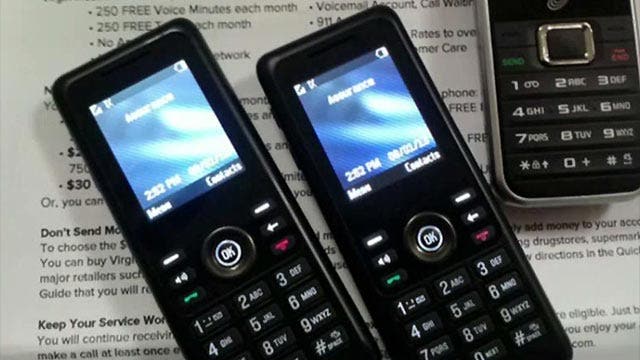Now some fresh pickings from the Political Grapevine...
Blame Game
The lawyer for San Diego Mayor Bob Filner says the city should be on the hook for the mayor's legal bills as he fights sexual harassment charges because he did not receive state-required training to prevent it.
Several women have come forward with accounts of inappropriate sexual advances from the Democratic mayor.
His former communications director, for example, is suing, claiming Filner tried repeatedly to kiss her and asked her -- among other things -- not to wear underwear to work.
Filner's lawyer says sexual harassment training was scheduled at one point, but then cancelled.
He says that training could have prevented the alleged harassment.
The City Council disagreed unanimously voting not to pay for Filner's defense.
The Hoodie
The Smithsonian is interested in obtaining the hoodie worn by Trayvon Martin the night he was killed.
The director of the Smithsonian's National Museum of African American History tells the Washington Post, the sweatshirt represents an opportunity to further the discussion about race in America.
Last month, George Zimmerman was acquitted of murder in the case.
The Smithsonian also has the handcuffs used when Harvard Professor Henry Louis Gates was arrested after a report of a break-in at his own home in 2009. That resulted in, of course, the so-called "beer summit" at the White House.
Talk Is Cheap?
And finally, an update on just how easy it is to obtain a free cell phone from the government.
As we've reported, the Lifeline program is ripe for fraud and abuse, with phones being issued to dead people, multiple phones going to the same person, and phones going to people who don't qualify.
Well, a reporter recently put the program to the test and ended up with three cell phones despite not qualifying for government assistance.
Jillian Melchoir of the National Review reports, she simply showed up at food stamp offices in New York City and was approached outside by vendors ready to sign her up. Despite telling them she did not receive any assistance, they submitted applications for her.
She repeated this at other offices, even telling subsequent vendors that she had already filled out an application. At one location, she even arrived clearly talking on her smartphone and was signed up, despite the point of the program being to supply phones to people who otherwise cannot afford cell phone service.
Arkansas Republican Congressman Tim Griffin points out, one possible explanation -- the wireless companies providing the phone get paid for every single one they hand out.
We contacted the FCC from our privately-financed phones. A spokesman says it is putting checks in place to combat waste -- quote -- "We take any abuse of our rules seriously -- and are acting aggressively to enforce them in order to preserve this program for the less fortunate among us."






















